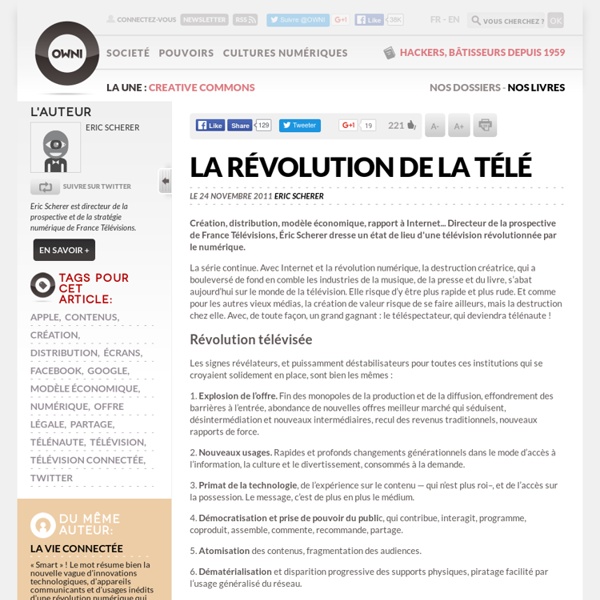La révolution de la télé

The 40 Best Blogs for Journalism Students
Because journalism as a whole constantly ebbs and flows along with the currents of new technologies, students hoping to graduate and enter into the industry need to understand how its myriad facets change over time. Seeing as how blogs — one of the cornerstones of digital media and citizen reporting — inherently boast a current, updated structure, they provide an ideal conduit through which to trace all the most timely trends, concerns, and opinions. No matter their specialty or area of interest, at least one of the following will provide some nourishing food for thought and effective supplements to classroom lesson. Tabloid Watch’s constant update schedule (purposefully) highlights everything journalists should absolutely not do.
How journalism startups are making money around the world
For the last two years I have had an opportunity to participate in an ambitious global research project: how journalistic startups are making money in the United States, Japan, the United Kingdom, France and five other countries. The project is called Sustainable Business Models for Journalism. What did we find? First, bad news: there’s no single, easy solution or amazing new business model that solves all the problems that traditional publishing models have. But looking through some of the very grassroots operations around the globe, you find some similarities among the sites. Probably the most comforting lesson from these young and old entrepreneurs is the fact that there’s probably no need for an amazing new business model. Here are some general conclusions from the 69 startups we interviewed. Find your niche. Be passionate. Keep it small and agile. You are the brain of your own business. Ask for support (aka money).
Related:
Related:



